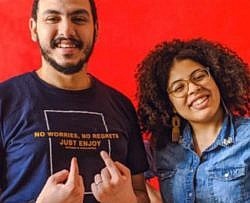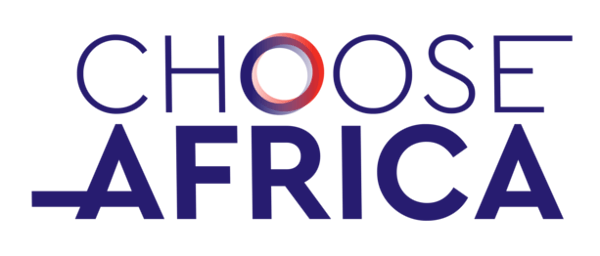NoBox Lab is a social enterprise set up by Sophia El Bahja and Walid Machrouh in 2017 to provide Moroccan children with access to innovative digital educational content. Sophia and Walid have developed a web/mobile interface combining educational games and videos to help build educational and personal skills among 6-14 year-olds through artificial intelligence.
An interview with Sophia El Bahja and Walid Machrouh, the founders of NoBox Lab, which is supported by the AFIDA program
AFD : Pourquoi avez-vous décidé de vous lancer dans l’aventure entrepreneuriale ?
AFD: Why did you decide to embark on an entrepreneurial venture?
Sophia: When we were studying at the Faculty of Science and Technology of Tangiers, we joined the Enactus Club, a community of students and leaders committed to using entrepreneurship to improve lives and shape a more sustainable world. We set up NoBox Lab under this program to provide all children with access to quality digital education.
Walid: We started with nothing. We were a group of students who wanted to work on this project to have an impact on the lives of others and support the development of children. Our objective was for them to acquire “life skills”, such as innovation and making a social commitment, in addition to basic educational skills. So we set up a platform combining games on mobile phones, educational videos and artificial intelligence to promote skills acquisition and personal development among young people aged between 6 and 14. We managed to test our pilot project in a school and it was a real success. Our three main activities are currently: 1) the creation of educational videos by children and for children, 2) a creative laboratory where we work on the freedom of expression of young people and 3) an innovation lab that supports several universities.

Sophia El Bahja and Walid Machrouh
How did you manage to create a profitable economic model?
Walid: We started out by organizing fee-based activities and workshops on themes such as robotics, coding and programming, the environment and chemical experimentation. We subsequently worked with several schools, organizations and associations, which allowed us to generate a turnover. We then reinvested this profit in the company to finance innovation and digital content. The e-tech platform we’ve developed now operates with a freemium model: a part accessible free of charge and a part only accessible with a fee-based model. We still organize various creative workshops and ongoing programs for our subscribers.
How did the AFIDBA program help you?
Walid: AFIDBA helped us strengthen the digital dimension of our start-up. The sessions with an expert coach allowed us to create a more effective targeting and a more robust digital communication strategy. The financing we obtained has helped us overcome the Covid-19 crisis by giving us the security we need to remain focused on innovation. The networking aspect has also been very important. We have benefited from advice, technical assistance and learned about the good practices in the sector.
Sophia: AFIDBA has also helped us strengthen the inclusive dimension of our project. We have learned about issues related to the integration of the most disadvantaged populations (BoP: bottom of the pyramid) and how to include them in our business model. We have conducted small-scale workshops to more clearly define our impact strategy. This has made us understand that to reach the most vulnerable populations, we also needed to scale up and create a content that can be disseminated throughout Morocco and in other parts of Africa.
What are your prospects for growth?
Walid: We now want to create educational video capsules in a simplified Moroccan Arabic dialect in order to have an impact on several regions in Morocco and the Maghreb region. However, the digital part is still a crucial issue, as many people don’t know how to use these tools or don’t have an Internet connection.
Sophia: We’re planning to work with associations that can help us reach a larger number of disadvantaged populations. We need to be aware that digital technologies will become part of our daily lives and that we must at the same time fight the digital divide. The health crisis has helped accelerate the digital side of education. We now need to continue down this road and create an ecosystem of inspiration. In this respect, we hope that NoBox Lab will be a leading company in the MENA region.
Interview by Luz Elena Navarro
About the AFIDBA program: AFD for Inclusive & Digital Business in Africa aims to support the acceleration of inclusive and digital businesses in Morocco, Ghana, Senegal and Burkina Faso. Launched in 2019, AFIDBA has been set up to contribute to economic, sustainable, digital and inclusive development in Africa. Through a network of local incubators and international experts, the program is supporting and financing the scaling-up of 60 start-ups for a 3-year period, while strengthening their inclusive dimension.
About AFD’s Social and Inclusive Business strategy: In 2019, AFD renewed its ambition to support social and inclusive entrepreneurship by approving a new strategy. Its objective is to allocate EUR 1bn by 2023 for social and inclusive business in developing countries.

